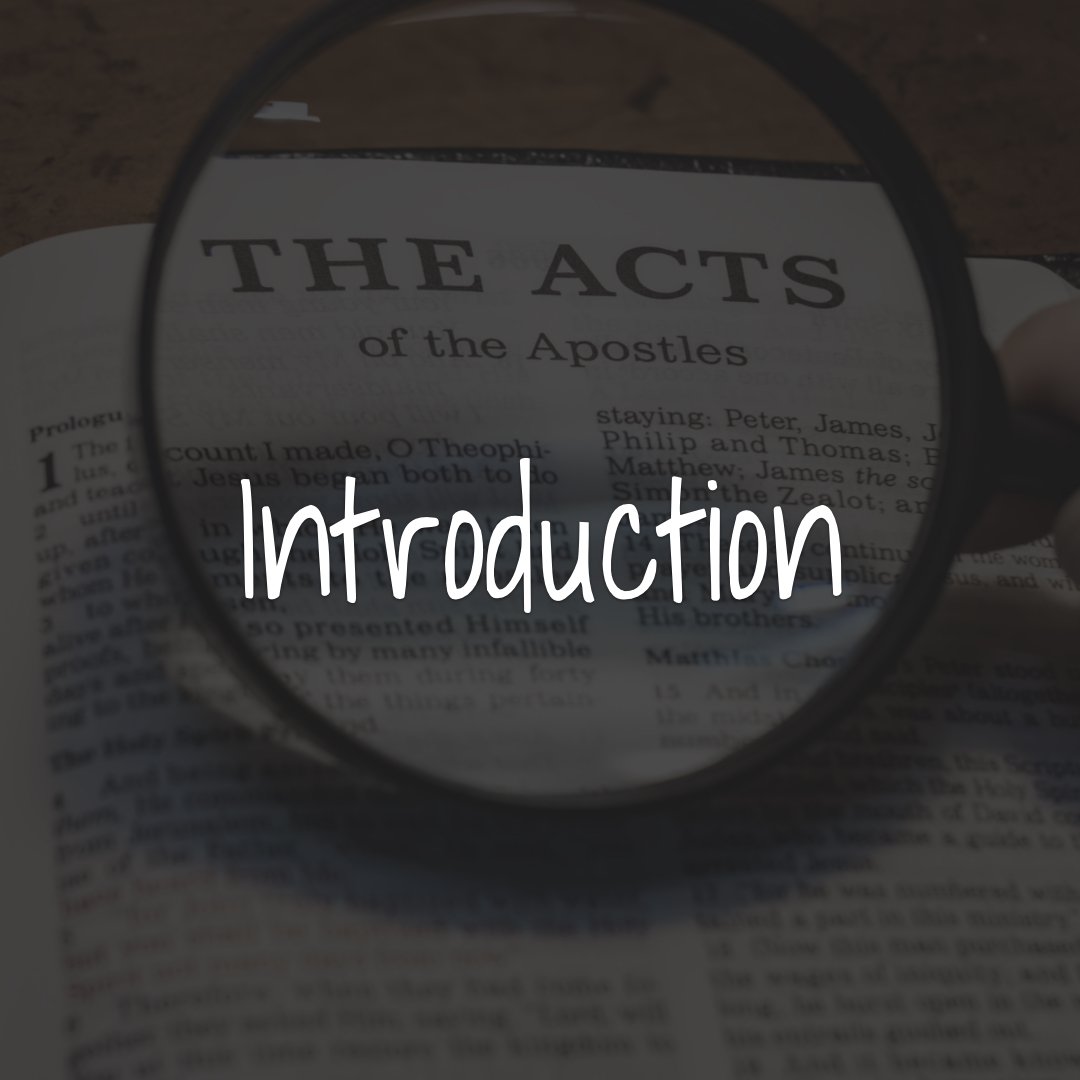

Acts 1
Acts chapter one serves as the bridge between the Gospels and the early followers of Jesus, beginning with the risen Jesus spending forty days with His apostles, teaching about the Kingdom of God. He instructs them to wait in Jerusalem for the promised Holy Spirit, who will empower them to be His witnesses "in Jerusalem, and in all Judea and Samaria, and to the ends of the earth." Jesus then ascends to heaven, leaving the apostles to pray and prepare. They replace Judas Iscariot by casting lots, choosing Matthias to restore the Twelve, symbolizing a renewed mission for the fledgling church. The chapter sets the stage for the outpouring of the Spirit and the explosive growth of the early Jesus movement.
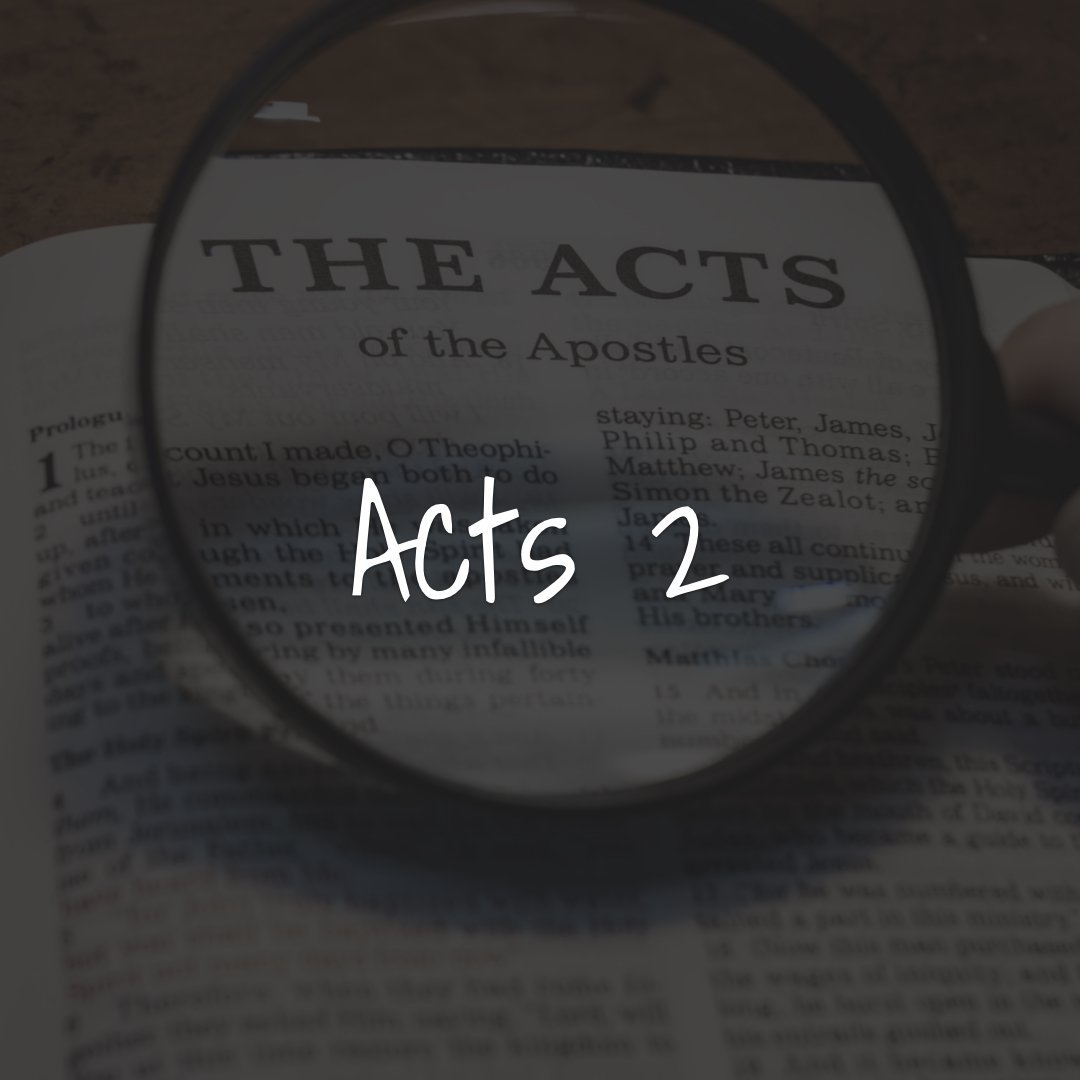
Acts 2
Acts chapter 2 recounts the day of Pentecost, when the Holy Spirit descended upon the apostles, filling them with power and enabling them to speak in diverse languages. This miraculous event drew Jews from many nations who were in Jerusalem, each hearing the apostles proclaiming God’s deeds in their native tongues. Peter, addressing the crowd, interpreted this outpouring as the fulfillment of Joel’s prophecy, marking the arrival of the "last days." He boldly proclaimed Yeshua as the Messiah, whom God raised from the dead, calling the people to repent and be baptized in His name. In response, about three thousand people joined the community, forming a close-knit, communal body of believers devoted to worship, fellowship, and mutual care.

Acts 3
Acts 3 describes how Peter and John, while going to the Temple for the hour of prayer, encounter a man lame from birth at the Beautiful Gate. The man, who was begging for alms, receives far more than he expected when Peter, in the name of Jesus Christ of Nazareth, heals him, enabling him to walk. The healed man joyfully enters the Temple with them, praising God, which astonishes the onlookers. Peter seizes the opportunity to address the crowd, explaining that the miracle was done by the power of Jesus, whom they had rejected and crucified, urging them to repent so their sins may be blotted out and times of refreshing may come from the Lord.

Acts 4
Acts 4 recounts the aftermath of Peter and John healing a man in Jesus' name, leading to their arrest by the religious leaders. Despite being warned to stop teaching about Jesus, the apostles boldly declared that they could not remain silent about what they had seen and heard. The chapter emphasizes their unwavering faith, the power of the Holy Spirit, and the early believers' unity in prayer and sharing. The apostles’ courage and commitment to proclaiming Jesus as the cornerstone, despite opposition, highlight the growing tension with the religious authorities and the unshakeable mission of the early followers of Jesus.
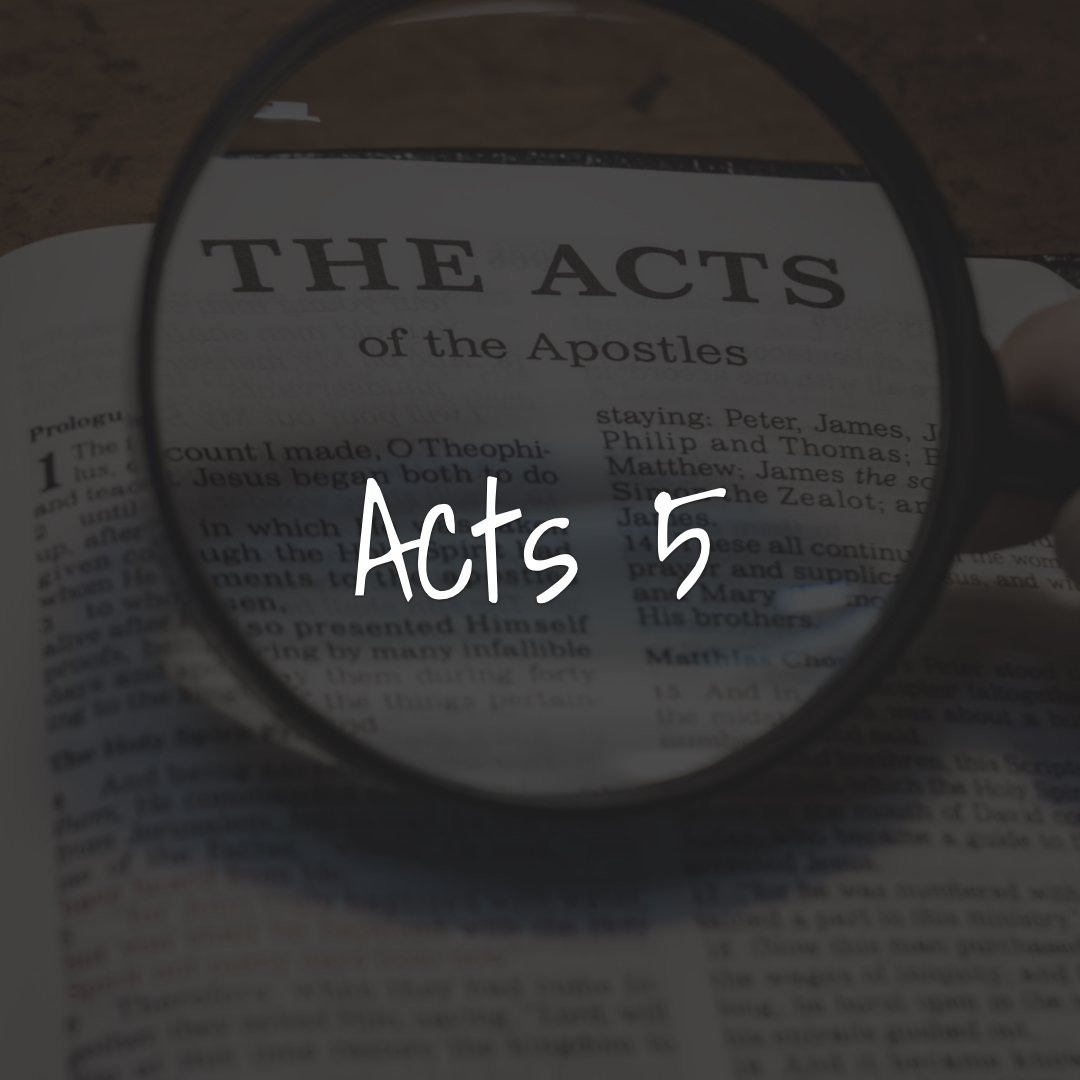
Acts 5
Acts 5 narrates both the serious consequences of deceit within the early community, as seen in the story of Ananias and Sapphira, and the remarkable growth of the apostles' ministry. The apostles performed many signs and wonders, bringing healing to the sick and oppressed. Despite growing opposition from the religious leaders, who arrested them, the apostles were freed by an angel and continued preaching in the Temple. When confronted again, Peter boldly proclaimed their duty to obey God rather than human authority, emphasizing that Jesus is the Savior exalted by God. The chapter closes with the apostles rejoicing for being considered worthy to suffer dishonor for the name of Jesus.

Acts 6
Acts 6 highlights the growing early church and the challenges of meeting both spiritual and practical needs. As the number of disciples increased, complaints arose from Greek-speaking believers (Hellenists) that their widows were being overlooked in daily food distribution. To address this, the apostles appointed seven men, full of the Spirit and wisdom, to oversee these duties, allowing the apostles to focus on prayer and teaching the Word. Among the seven was Stephen, described as a man of great faith and power, who performed miracles and boldly proclaimed the gospel, setting the stage for his later trial and martyrdom.

Acts 7
Acts 7 records Stephen’s powerful defense before the Sanhedrin, where he recounts Israel’s history, highlighting God’s faithfulness and the people’s repeated rejection of His messengers. He emphasizes the promises to Abraham, the leadership of Moses, and the building of the temple, ultimately accusing his audience of resisting the Holy Spirit and betraying the Righteous One, Jesus. Enraged, the council stoned Stephen, who, filled with the Holy Spirit, saw a vision of Jesus standing at the right hand of God and prayed for his persecutors as he died, becoming the first martyr for his faith in Jesus.

Acts 8
Acts 8 recounts the expansion of the early church beyond Jerusalem, driven by persecution. It highlights the evangelistic work of Philip, who proclaims the gospel in Samaria, leading to great joy as many believe and are baptized. The chapter also introduces Simon the magician, whose misguided attempt to buy the power of the Holy Spirit reveals the importance of genuine repentance. The narrative culminates in the story of Philip and the Ethiopian eunuch, demonstrating the Spirit’s guidance in bringing the message of Jesus to the ends of the earth through the explanation of Isaiah’s prophecy.

Acts 9
Acts 9 marks a pivotal moment in the early church with the dramatic transformation of Saul, a zealous persecutor of followers of Jesus. On the road to Damascus, Saul encounters the risen Jesus, leaving him blinded and humbled. Through the obedience of Ananias, Saul is healed, baptized, and becomes a powerful witness for the Messiah within the framework of Judaism. The chapter also recounts Peter’s miracles, including healing Aeneas and raising Tabitha (Dorcas) from the dead, showcasing the spread of the gospel and the power of God at work through His people.
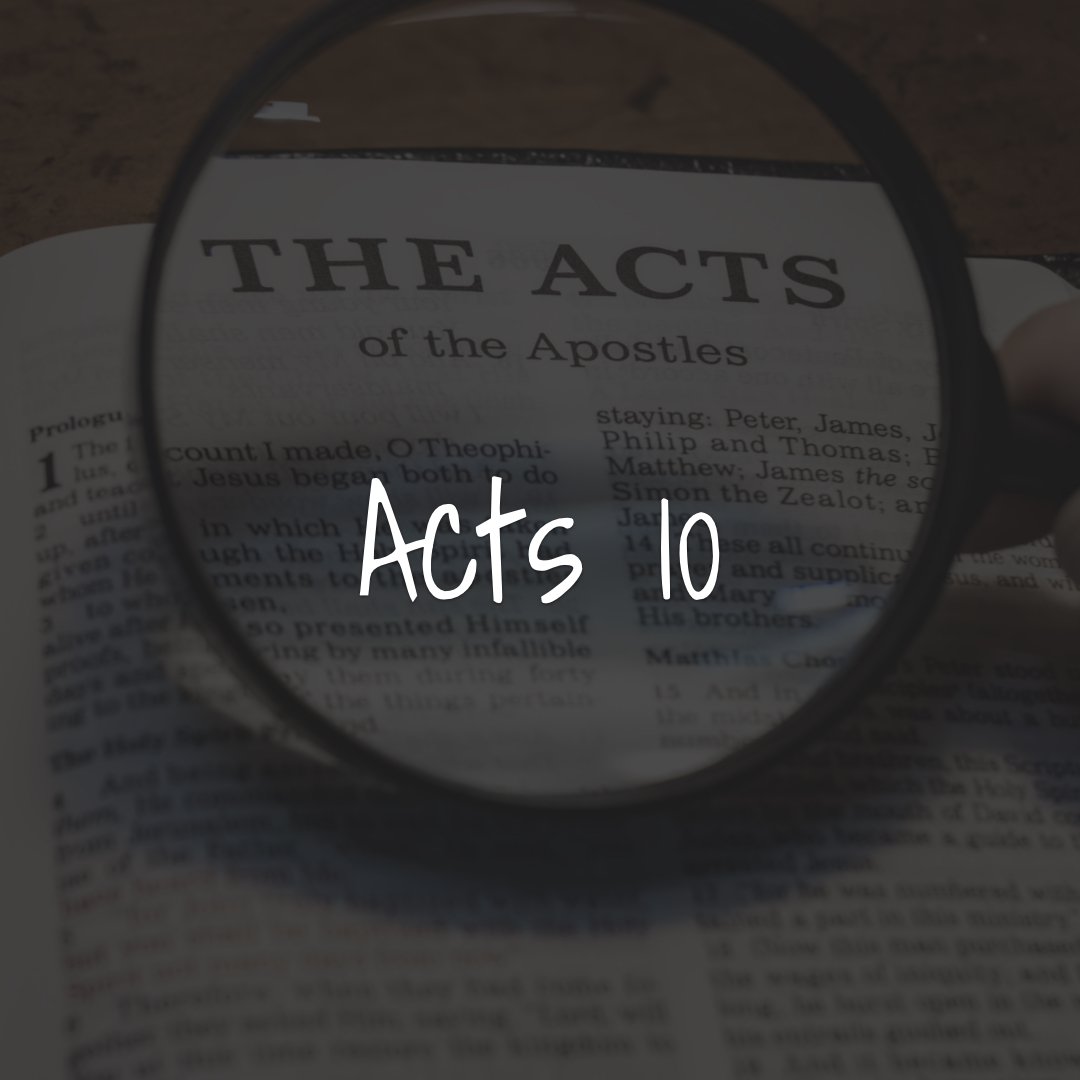
Acts 10
Acts 10 recounts the pivotal story of Cornelius, a Roman centurion and God-fearer, whose vision from an angel leads to the inclusion of Gentiles in the early church. Cornelius, known for his devotion, generosity, and prayer, is instructed to send for Peter, who simultaneously receives a vision challenging Jewish dietary laws and symbolizing the acceptance of Gentiles. When Peter arrives in Cornelius’s home, he preaches the Gospel, declaring that God shows no partiality and that salvation is available to all through Jesus Christ. As Peter speaks, the Holy Spirit falls on the Gentiles, confirming God’s acceptance of them, and they are baptized, marking a monumental expansion of the Christian mission beyond the boundaries of Judaism.

Early Legends
The gospel message began to extend to Gentiles in regions like Adiabene and Osroene during the early spread of faith in Yeshua. In Adiabene, King Izates and his mother Helena embraced Judaism after encountering Jewish teachers, while in nearby Osroene, King Abgar of Edessa reportedly converted after being miraculously healed by the apostle Thaddeus. These stories highlight the growing influence of the Jewish faith and the message of Yeshua beyond Israel’s borders. Concurrently, figures like Simon Magus arose, blending heretical teachings with elements of the gospel, creating a sharp contrast between apostolic truth and early Gnostic distortions. These narratives illustrate the tension between genuine faith and counterfeit movements, underscoring the apostles' role in preserving the integrity of the gospel message while bringing hope and transformation to the nations.

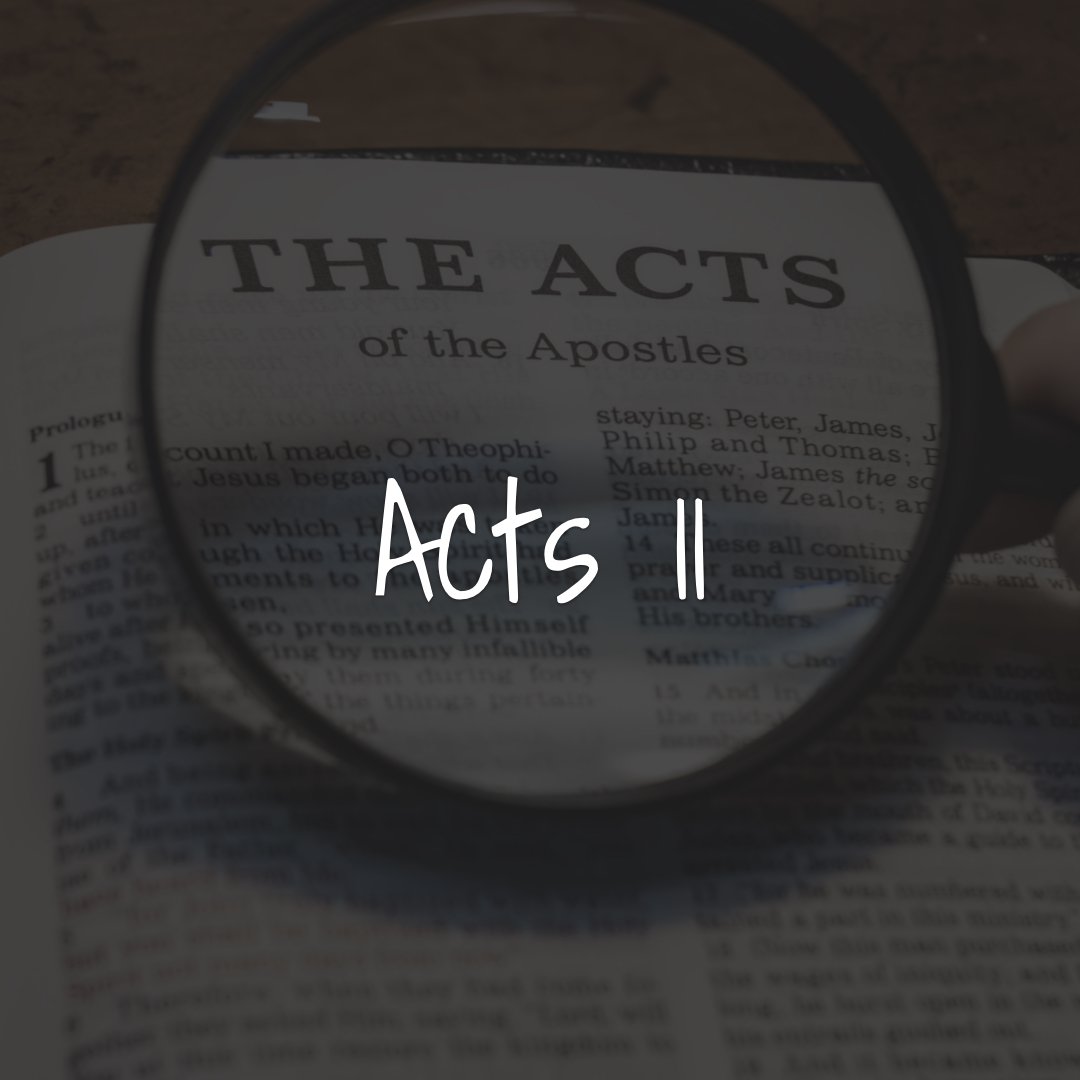
Acts 11
Acts 11 recounts how Peter defends his actions in welcoming Gentiles into the faith to the believers in Jerusalem. Criticized for associating with uncircumcised men, Peter explains the vision he received, where God declared all foods clean, and the divine command to go to Cornelius’s house. He testifies about the Holy Spirit descending on the Gentiles just as it had on the Jewish believers at Pentecost, affirming that God granted them repentance leading to life. Convinced by Peter’s account, the believers glorify God, acknowledging that salvation through Jesus Christ is extended to the Gentiles, further solidifying the inclusive nature of the Gospel.

Acts 12
Acts 12 recounts King Herod Agrippa I’s persecution of the early church, beginning with the execution of James, the brother of John. Seeing that this pleased some Jewish leaders, he arrested Peter during the Feast of Unleavened Bread, intending to put him on trial. However, an angel miraculously freed Peter from prison, leading to great astonishment among the believers. Meanwhile, Herod met his sudden death in Caesarea, struck down after accepting divine praise from the people. The chapter concludes with the continued growth of God’s word and Barnabas and Saul returning to Antioch, bringing John Mark with them.

Acts 13
Acts 13 marks the beginning of Paul’s first missionary journey. The Holy Spirit commissions Barnabas and Saul in Antioch, and they travel to Cyprus, where Paul confronts Elymas the sorcerer, leading to the conversion of Sergius Paulus. In Pisidian Antioch, Paul delivers a powerful sermon in the synagogue, proclaiming Jesus as the fulfillment of God’s promises to Israel. While many Gentiles eagerly accept the message, some Jewish leaders oppose them, leading to Paul and Barnabas being expelled from the city. The chapter ends with the disciples rejoicing and being filled with the Holy Spirit as they continue their mission.

Acts 14
Acts 14 recounts Paul and Barnabas’ missionary journey in Iconium, Lystra, and Derbe, where they boldly preach the gospel despite opposition. In Iconium, their message divides the city, forcing them to flee to Lystra, where Paul heals a lame man, leading the crowd to mistake them for gods. However, Jewish opponents incite violence, and Paul is stoned and left for dead but miraculously recovers. They continue preaching in Derbe before retracing their steps to strengthen the disciples, appoint elders, and encourage perseverance, affirming that "through many tribulations we must enter the kingdom of God."

Acts 15
In Acts 15, a dispute arises in Antioch when some men from Judea insist that Gentile believers must be circumcised to be saved. Paul and Barnabas argue against this, leading to a council in Jerusalem where the apostles and elders, including Peter and James, deliberate the matter. Peter emphasizes that God has given the Holy Spirit to the Gentiles apart from the law, and James cites prophecy to affirm their inclusion. The council concludes that Gentile believers should not be burdened with the full yoke of the law but must abstain from idolatry, sexual immorality, strangled meat, and blood. A letter is sent to Antioch with this decision, bringing encouragement and unity to the followers of Messiah.

Acts 16
In Acts 16, Paul meets Timothy in Lystra and takes him along on his journey, circumcising him to avoid conflict with the Jews in the region. Guided by the Holy Spirit, Paul and his companions are directed to Macedonia, where he has a vision of a man pleading for help. In Philippi, they encounter Lydia, a wealthy woman who converts and hosts them. A slave girl with a spirit of divination follows them, and Paul casts out the spirit, angering her owners, who have Paul and Silas beaten and imprisoned. While singing hymns in jail, an earthquake opens the prison doors, but they remain, leading the jailer to conversion. After being released, Paul asserts his Roman citizenship, demanding an apology before leaving the city.

Acts 17
In Acts 17, Paul and Silas travel to Thessalonica, where Paul reasons from the Scriptures in the synagogue, proving that Jesus is the Messiah. Some believe, but others stir up a mob, forcing them to flee to Berea. The Bereans are more receptive, diligently examining the Scriptures, but opposition follows from Thessalonica, causing Paul to move on to Athens. There, he is disturbed by the city's idolatry and debates with philosophers. At the Areopagus, he proclaims the "unknown God" as the Creator, calling people to repentance and affirming the resurrection of Jesus. Some mock him, while others, including Dionysius and Damaris, believe and follow him.